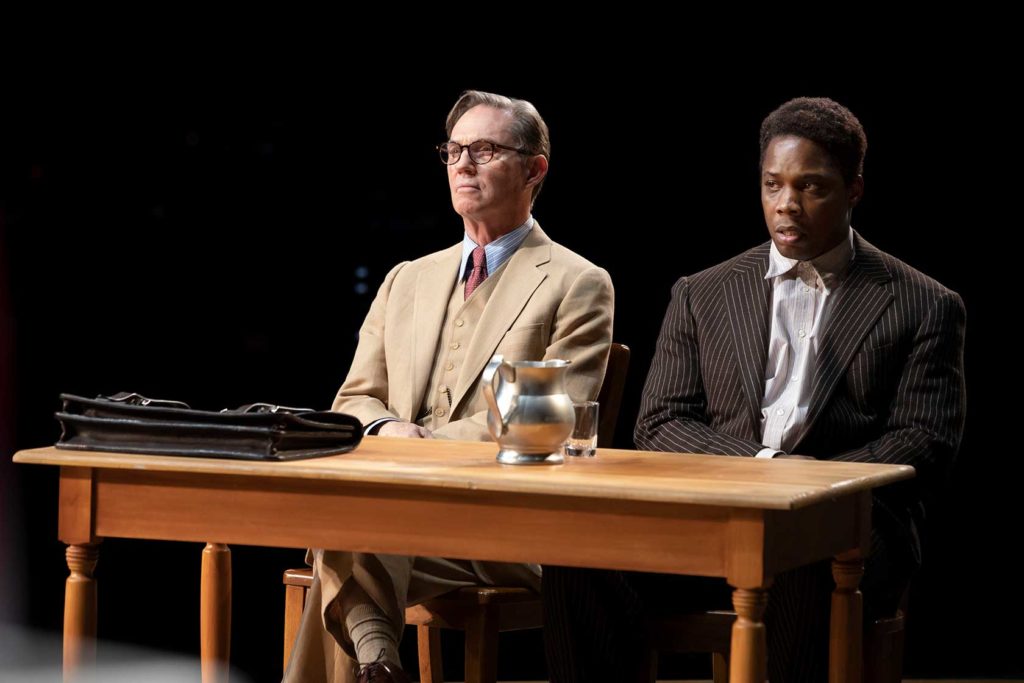‘To Kill a Mockingbird’
Updated version of the classic comes to Boston

The first national tour of Broadway’s “To Kill a Mockingbird” opens at Boston’s Citizens Bank Opera House on April 5. Based on Harper Lee’s classic novel, Academy Award®-winner Aaron Sorkin’s adaptation approaches the narrative with the sensibility of contemporary racial dialogues.
For Yaegel T. Welch, who plays Tom Robinson, the production is something of a homecoming. Welch attended graduate school at Brandeis and earned his membership to the Actors’ Equity Association performing in “To Kill a Mockingbird” at the New Repertory Theatre. He was always drawn to the role, he says, and the important conversations incited by it.
“To Kill a Mockingbird” centers on Scout, a young white girl growing up in Alabama in the 1930s. While Scout comes of age, learning about the world and spying on her reclusive neighbor “Boo” Radley, a larger conversation about race is happening in town. Tom Robinson, a Black man, is falsely accused of raping a white woman, and a charged court battle ensues.
“As much as the book is about how racism effects this small white family in Alabama, it also exposes the terrorism that Black communities were experiencing,” says Welch. “I think right now it’s a timeless tale because it’s still happening.”
“To Kill a Mockingbird” has often been utilized in school systems to facilitate conversations about race and oppression. But the narrative, written by a white author and centering white characters, doesn’t effectively cover those issues. Welch notes that the Sorkin adaptation makes changes to the story to bring it into a more contemporary frame of mind.
“It’s not the movie and it’s not the book, that’s a key thing that people should know coming in,” says Welch. “Certain characters have more of a voice that they may not have had in the book or the movie. There’s more agency given.”
Welch also notes that he’s seen a shift in audiences’ reactions to the production since the COVID-19 shutdowns. George Floyd’s murder and the racial protests of the past few years have led audiences to be more responsive to the injustice against Tom Robinson and more vocal during the theater performance. “To Kill a Mockingbird” is currently the highest-grossing American play in Broadway history. The story continues to captivate audiences. With Sorkin’s adaptation, that performance now facilitates conversations about race in a more equitable manner.
“With social media, now that the world is becoming smaller because of technology, I think we’re starting to see that there is truth to these things,” says Welch. “I hope the audience takes away that racism, bigotry and discrimination affects us all.”









